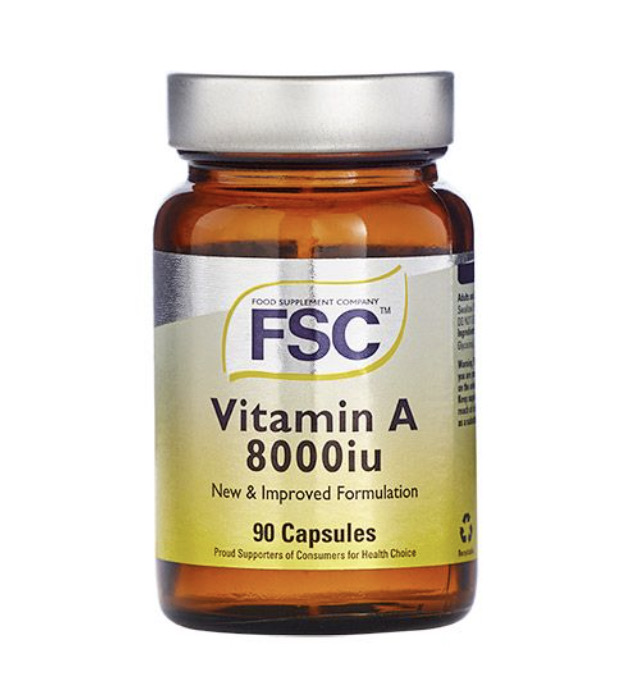Nutrition
Krystina Claire
Vitamin A Benefits
on
June 23, 2022

Vitamin A is a fat soluble vitamin which can be found in two primary forms Retinol or beta-carotene.
Retinol is found in animal products (dairy, meat and fish products) and I'm sure you would have seen it listed as the star ingredient on loads of anti-ageing creams. Beta-carotene comes from colourful fruit and vegetables. It needs to be converted to retinol by the body for it to be used. If you are taking vitamin A in capsule form the label will probably be called Vitamin A Palmitate.
The most well known benefit of Vitamin A is eye health. I’m sure you have heard when you were a child that eating carrots will help you see in the dark…well it’s true! Carrots contain beta-carotene which keep your eyes healthy and helps prevent macular degeneration. Vitamin A improves eyesight as it is a critical component of the rhodopsin molecule (“a biological pigment found in the rods of the retina. Rhodopsin is extremely sensitive to light and enables our vision in low light conditions”)
Vitamin A plays an important role in bone growth. But it’s important to remember that too much or too little vitamin A can both have a negative effects on our bone health. Getting the right balance is key.
Vitamin A - in the form of beta-carotene is important during pregnancy and breastfeeding. It has shown to be beneficial in preventing developmental disorders and improving lung function and maturation.
Beta-carotene is converted into retinol when needed by the body, preventing high levels which can be harmful to your developing baby. Don’t take vitamin A supplements during pregnancy, as high levels of vitamin A have been linked to birth defects.
Medical News Today published an article a few days ago with the latest study on Vitamin A which talks about how vitamin A “keeps the peace” in our immune system. It plays an important role in mediating the relationship between gut bacteria and the immune system. Studies suggest that interactions between our gut and the bacteria that colonies out intestines help control how our bodies respond to illness. Scientists have found that moderate levels of vitamin A in our intestines prevent the immune system from becoming overactive.
Beta carotene also acts an excellent anti-oxidant and because of the role vitamin A plays in keeping the immune system from overacting it can prevent inflammation in the body. As I have mentioned before in previous posts, inflammation is the root cause of most chronic illnesses.
Vitamin A is excellent for your skin. Dermatologist often prescribe retinol cream (vitamin A) to help treat acne. As mentioned above it’s also the star ingredient in many anti ageing creams, this is because the retinol stimulates the production of new skin cells, and decreases the appearance of fine lines and wrinkles by stimulating collagen production.
A deficiency in vitamin A is not often seen in developed countries but can cause, dry skin, dry eyes, night blindness, slow growth rate, poor wound healing and frequent infections. Because vitamin A is fat soluble and stored in the liver - too much of it can cause vitamin A toxicity which can lead to changes in your vision, swelling of your bones, ulcers and rough dry skin. This can be checked by a simple blood test.
And remember always speak to your doctor before adding a new supplement to your daily routine. Pregnant woman should avoid supplementing with vitamin A as research shows it can cause birth defects if taken in high doses. Stick to your prenatal supplement as this will have the adequate amount of each vitamin and mineral needed to see you safely through your pregnancy. Vitamin A in high doses can also be harmful to your liver and bone density. Getting vitamin A in the form of beta carotene is the best option over taking a supplement, as then you only convert what is needed and prevent a build up of toxic levels in your liver.






